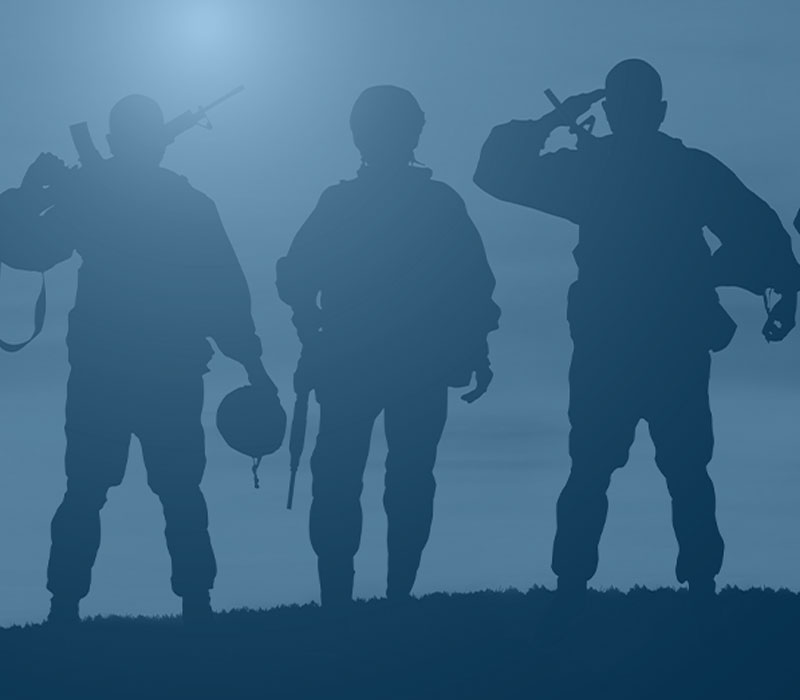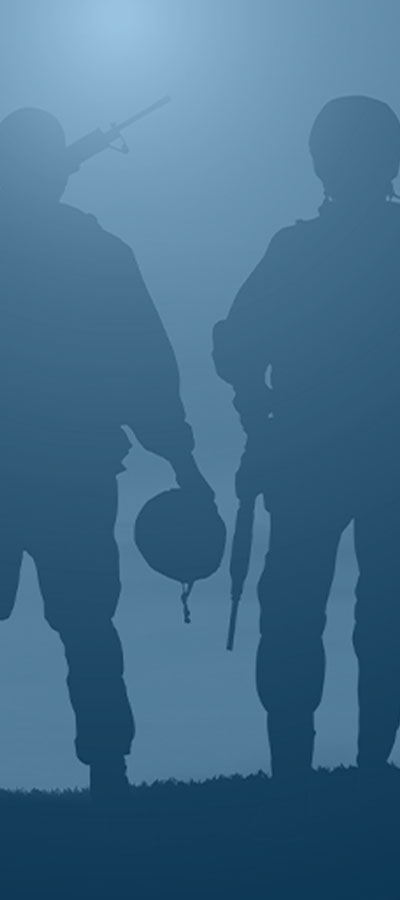A Frightening Truth
After years of denying responsibility for health problems related to contaminated water on the Camp Lejeune military base in North Carolina, the Agency for Toxic Substances and Disease Registry (ATSDR) confirmed the water was, in fact, contaminated at levels 240- to 3,400 times the amount permitted by safety standards. Exposure to such high concentrations of these chemicals can cause cancer, liver damage, kidney failure, and skin irritation.
The Cause of the Water Supply Contamination
The causes include improper waste disposal by a dry-cleaning company, leaking underground storage tanks, industrial spills, and area waste disposal sites.
Who Was Exposed and When?
In 1982, volatile organic compounds (VOCs) were found in three of the eight water distribution systems on the base: Hadnot Point, Holcomb Boulevard, and Tarawa Terrace. These wells provided drinking and bathing water to barracks, temporary and permanent family housing, schools, daycares, and many work areas. People who lived or worked in areas serviced by these plants for 30 days or more between August 1, 1953, and December 31, 1987, may have been exposed to toxins through the water. Exposure to such high concentrations of these chemicals put those exposed at risk of cancer, liver damage, kidney failure, and skin irritation.
What Toxins Were in the Water?
The four most prevalent chemicals found in the water supply are listed below. However, in total, over 70 contaminants were found.
- Perchloroethylene (PCE)
- Benzene
- Trichloroethylene (TCE)
- Vinyl Chloride
Cancers Linked to Camp Lejeune Water Contamination Include:
- Acute Myeloid Leukemia (AML)
- Esophageal cancer
- Lung cancer
- Brain cancer
- Non-Hodgkin’s lymphoma
- Kidney cancer
- Central Nervous System cancer (CNS)
- Bladder cancer
- Leukemia
- Multiple myeloma
- Cervical cancer
- Hodgkin’s lymphoma
- Liver cancer
- Multiple myeloma
- Rectal cancer
- Ovarian cancer
- Prostate cancer
Other Illnesses Include
- Immune disorders
- Fatty liver disease (hepatic steatosis)
- Cardiac defect
- Aplastic anemia
- Infertility/miscarriages
- Epilepsy
- Nerve damages
- Scleroderma
- Neurobehavioral effects
- Neurobehavioral effects
- Parkinson’s disease
- Kidney damage
- Myelodysplastic syndromes
- Renal toxicity/disease
New Law Provides a Pathway for Compensation
Until recently, those harmed by exposure to the contaminated water were without recourse. Evidence revealed so many years after the wells were shut down, thousands of victims were left with nothing but an expired statute of limitations.
With the passage of new legislation, however, there is hope for justice. The Camp Lejeune Justice Act of 2022 enables veterans, their families, and civilians who worked on the base to collect compensation for their damages by filing a claim in the U.S. District Court in the Eastern District of North Carolina.
The water contamination attorneys at Goldstein, Buckley, Cechman, Rice & Purtz, P.A. are ready to answer your questions about a claim through a free legal consultation, no matter where you currently live.
Camp Lejeune Contaminated Water Client Story
We are sharing the client story below to provide you with additional information about filing a Camp Lejeune contaminated water claim. The names and specifics have been edited to protect the privacy of our client, but the value of the information remains. Please read to the end, and then reach out to schedule your free legal consultation.
On a cool, rainy day in Naples, FL not so long ago, Emma Rhodes sat on a stone bench under the protective branches of a willow oak reading her recent medical test results to her dad.
“So, what do you think?” she asked, as she refolded the letter and slipped it back into her canvas messenger bag. As usual, she got no reply. Angry tears burned down her cheeks. She wiped them away with the back of her sleeve.
“Well?” she demanded loudly before checking her emotions and looking around the grounds, embarrassed. She saw only a landscaper, going about his day fifty yards away like all was right in the world.
“Come on, Marine, don’t give me the thousand-yard stare now. You must have something to say,” Emma said bitterly. The wind cooled her wet cheeks in the silence.
“Well, that’s just great. You know what? I’ve got somewhere to be. I’ll let you know how it goes.” She got three steps before she stopped and turned back.
“I’m sorry, Dad. I know this isn’t your fault,” Emma said, kissing her fingers and touching them to the marble headstone. She read it for the thousandth time.
Mark Rhodes, Beloved Husband and Father.
She whispered, “I love you,” before she turned and left the cemetery.
Two hours later, Emma met Water Contamination Attorney Christopher Smith, an attorney at the law firm of Goldstein, Buckley, Cechman, Rice & Purtz on a Zoom call to discuss a possible water contamination claim against Camp Lejeune. She gave him a quick background of the reason she’d requested a consultation.
“Thank you for meeting with me. Now that the Camp Lejeune Justice Act has been passed, I need to find out whether I might qualify for a claim.
“My father was stationed at Lejeune during the early years of my parents’ marriage. My brother Tommy was born there in 1983, and I was born there in 1985.
“Dad later told me that back around the time I was born, people were starting to suspect a problem with the water on the base, but base command denied it. Even so, my mom grew more and more concerned and insisted we move off base in early 1986, not long after I was born.
“In the years that followed, my parents tried for a third child, but Mom had miscarriages. They eventually gave up, deciding to focus on the blessings they did have.”
Emma paused and swallowed, willing herself to tell it like an observer. Attorney Smith waited as she found the words.
“We lost Tommy when he was twelve. Leukemia. By then Mom was sick. Breast cancer. She died in 1996.
“It was just Dad and me until 2005. I lost him just after my sophomore year in college. Prostate cancer.” She closed her eyes and wiped her face, adding in a hoarse voice, “He was 45 years-old.” She looked away. “Sorry.”
“Not at all, Emma. I am so sorry for your loss,” said Attorney Smith, his heart breaking for her. “Please know you are not alone; many families who were stationed at Camp Lejeune share very real pain because of a truth that can no longer be denied and swept under the rug. Take all the time you need.”
A minute later, Emma lifted her chin and continued, “I met my husband in 2015. Ironically, he’s also a former Marine, but out of Port Charlotte. He’d settled in Fort Myers during his first marriage and stayed after the divorce to be near his son, Max.
“We didn’t try to have children until a few years ago, to give Max our attention before trying for a baby. We tried for two years but were unsuccessful. Turns out I’m infertile.” She took a deep breath. “We’ve begun the adoption process. It’s emotionally and financially draining, but we’re slogging through it.
“In the meantime, the doctors have been keeping an eye on my ovaries. I just received a positive biopsy for cancer. We’re hopeful with a hysterectomy…” She stopped, then said with a wry smile, “Never thought I’d say ‘hopeful’ and ‘hysterectomy’ in the same sentence.”
Do I qualify for a Camp Lejeune water claim?
Shaking her head, Emma pulled herself up straight. “So, now you have the background. As you can see, it spans the course of many years. We left the base in 1986, when I was less than a year old. Do I even qualify for a claim?”
“We’ll help you gather the information to present a case connecting medical information to your family’s presence on the base, but at this point, it looks like you have a number of relevant points for a claim,” said Attorney Smith.
“Anyone who worked or lived on Camp Lejeune for thirty days or more between August 1, 1953, and December 31, 1987, may be eligible. You may have only lived on base for a few months, but it was over 30 days, and before that, you were in your mother’s womb for nine months before you were born,” Smith said. “Your exposure likely began as a result of your mom’s exposure.
“Add to that the fact that you’ve lost three family members from what may very well be VOC-related illnesses. Are you aware that family members of people who developed qualifying illnesses after exposure to the contaminated drinking water may be eligible for a claim?
“In addition to investigating the deaths of your family members regarding their toxic exposure, we’ll examine your medical records to be sure we can establish a causal relationship between your own exposure and your current medical condition. But at this point, you’ve got as good a claim as anyone who’s considering moving forward,” said Attorney Smith.
What will it cost?
“What does it cost to move forward with a water contamination claim?” Emma asked. “Between the adoption expense and my new medical bills, we’re barely getting by.”
“A completely understandable question,” said Attorney Smith. “Our firm operates on a contingency-fee model, which means there are no up-front costs. We cover all expenses throughout the course of your case. In the end, you only pay us if we bring you a successful resolution to your claim.
“And keep in mind, as you get more information on your own medical condition, the procedures you are now facing may end up being included in your damages,” he added.
How much time do I have to file?
“How much time do I have to decide about this?” Emma asked.
“It’s likely most people who were affected by water contamination at Camp Lejeune will be able to file a claim, but the sooner you get the process stared, the better.”
I’ve never been someone who’d consider filing a lawsuit.
“Okay. I just… Despite everything that’s happened, I’m struggling with the feeling that filing a claim is somehow betraying my dad,” said Emma. “I mean, it’s not going to bring back what I’ve lost. And Dad, he loved the Corps.”
“Most people would rather avoid any type of legal action, if at all possible,” said Attorney Smith. “But I believe it’s the opposite. In asking the questions and standing up for a claim, you are honoring your brother, your mother, and your dad, and the sacrifices they made.
“And consider that you yourself are most likely experiencing the fallout of exposure to the same toxic chemicals. You’re dealing with emotional and financial burden as a result. You’re facing a surgery.
“In addition to all you’ve lost since you were born, consider the practical financial support you may receive for your family. Factor in the possibility of long-term care should you yourself need it in the future due to complications from your current health challenge, Heaven forbid. These things can financially devastate a family,” said Attorney Smith.
“Filing a claim is your only recourse to get compensation for your damages—the pain and suffering, the health conditions you now face, the loss of your loved ones.
“No, the money isn’t going to give you your family or your health back, but it can help you, your husband, and hopefully an adopted child get through what you now face and may face down the road from your own exposure to toxicants,” said Attorney Smith.
“It will also help shine a spotlight on this issue, which can only help prevent this kind of tragedy from happening again.”
Can I file a claim if I’m receiving VA benefits?
“What if I’m receiving some V.A. benefits, through my dad? Do I still qualify to pursue a claim?” Emma asked.
“Yes,” said Attorney Smith. “Under the Camp Lejeune Justice Act, you still qualify for a claim against the U.S. Government.”
Emma was satisfied with what she learned during her free legal consultation with Attorney Smith. She retained Goldstein, Buckley, Cechman, Rice & Purtz, P.A. and is moving forward in pursuit of justice for her family.
Call Our Camp Lejeune Contaminated Water Attorneys Today
We hope the information on this page has helped you better understand who may benefit from filing a Camp Lejeune contaminated water claim and why. Since every claim is unique to the client, we encourage you to call and schedule your free legal consultation as soon as possible, no matter where you currently live. Don’t give up on your chance for compensation to help your family. Let us walk you through this journey to help you take care of your loved ones.



